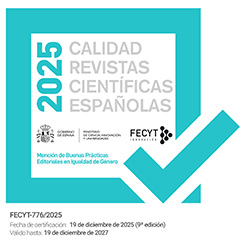The friction line between “lying” and “truth”, Oedipal conflict, and traumatic speaking and silence in Pat Barker’s Regeneration
Keywords:
“Lying”, “truth”, Oedipal conflict, WWI traumaAbstract
The present article analyses the first part of Pat Barker’s trilogy Regeneration (1991-1995), of the same title. It is set in the First World War and turns around the encounter between psychiatrist E. M. Rivers and War poet Siegfried Sassoon when the latter suffers from shell shock and publishes a complaint against the war politics of the British government. From the analysis of Sassoon’s Declaration, my main contention is that the novel addresses the liminal territory between “truth” and “lying” when representing and memorialising a traumatic event like WWI. In the second part, I delve into the poetics of psychoanalysis and (poetic) language as the narratives Barker uses to articulate the rapport between generations: fathers furthering a war in which their sons are involved. With this in mind, the paper analyses their oedipal conflict, as well as that between healer (Rivers) and trauma victim (Sassoon) both at a personal and national level.
Downloads
References
Arendt, Hannah. Crisis of the Republic. Harcourt Brace: New York, 1972.
Atkinson, Meera. “Transgenerational Trauma and Cyclical Haunting in Pat Barker’s Regeneration Trilogy.” Cultural Studies Review. 21.1. (2015): 58-75. https://doi.org/10.5130/csr.v21i1.3639
Barker, Pat. Regeneration. Penguin: London, 1991.
---. The Eye in the Door. Penguin: London, 1993.
---. The Ghost Road. Penguin: London, 1995.
Barrett, Michèle. “Pat Barker’s Regeneration Trilogy and the Freudianization of Shell Shock.” Contemporary Literature 53.2 (2012): 237-260. https://doi.org/10.1353/cli.2012.0016
Brannigan, John. Pat Barker. Manchester: Manchester University Press, 2005.
Butler, Judith. Gender Trouble. New York: Routledge. 1990.
Caruth, Cathy. Ed. Trauma. Explorations in Memory. Baltimore: Johns Hopkins UP, 1995.
---. Literature in the Ashes of History. Baltimore: Johns Hopkins UP, 2013.
Derrida, Jacques. Positions. Trans. Alan Bass. Chicago: Chicago UP, 1982.
Foucault, Michel. Discipline & Punish: The Birth of the Prison. Trans. Alan Sheridan. New York: Vintage Books, 1995.
Hollinghurst, Alan. The Stranger’s Child. London: Picador, 2011.
Hutcheon, Linda. A Poetics of Postmodernism. New York: Routledge, 1988. https://doi.org/10.4324/9780203358856
Joyes, Kaley. “Regenerating Wilfred Owen: Pat Barker's revisions.” Mosaic 42.3 (2009): 169–83.
Kendall, Tim. Poetry of the First World War. Oxford: Oxford UP, 2014.
Kirk, John. “Recovered Perspectives: Gender, Class, and Memory in Pat Barker’s Writing.” Contemporary Literature. 40.4 (1999): 603-626. https://doi.org/10.2307/1208796
LaCapra, Dominick. Writing History, Writing Trauma. Johns Hopkins UP, 2001.
Lifton, Robert Jay. The Broken Connection: On Death and the Continuity of Life. New York: Basic Books, 1979.
Luckhurst, Roger. The Trauma Question. London: Routledge, 2008. PMid:18850855
Monteith, Sharon. Critical Perspectives on Pat Barker. Columbia: University of South Carolina Press, 2005. PMCid:PMC1325245
Shaddock, Jennifer. “Dreams of Melanesia: Masculinity and the Exorcism of War in Pat Barker’s The Ghost Road.” Modern Fiction Studies 52.3 (2006): 656-675. https://doi.org/10.1353/mfs.2006.0074
Sontag, Susan. AIDS and its Metaphors. New York: Farrar, Straus and Giroux, 1989.
Steffens, Karolyn. “Communicating Trauma: Pat Barker’s Regeneration Trilogy and W. H. Rivers’s Psychoanalytic Method.” Journal of Modern Literature. 37. 3 (2014): 36-55.
https://doi.org/10.2979/jmodelite.37.3.36
Winter, Jay. “Shell-Shock and the Cultural History of the Great War.” Journal of Contemporary History. 35.1 (2000): 7-11. https://doi.org/10.1177/ 002200940003500102
Wurtz, James F. “Representing the Great War: Violence, Memory, and Comic Form.” Pacific Coast Philology 44.2 (2009): 205-215.
Downloads
Published
Issue
Section
License
Authors who publish with this journal agree to retain copyright and grant the journal right of first publication with the work simultaneously licensed under a Creative Commons Attribution License that allows others to share the work with an acknowledgement of the work's authorship and initial publication in this journal. Also, authors will retain the rights on their work, even if they will be granting The Grove. Working Papers on English Studies a non-exclusive right of use to reproduce, edit, distribute, publicly communicate and show their work. Therefore, authors are free to engage in additional, independent contracts for non-exclusive distribution of the works published in this journal (such as uploading them to an institutional repository or publishing them in a book), as long as the fact that the manuscripts were first published in this journal is acknowledged.

























